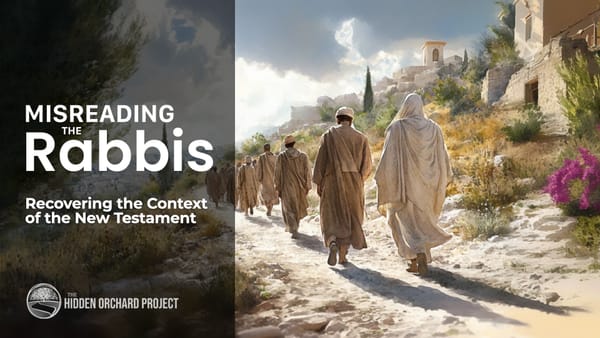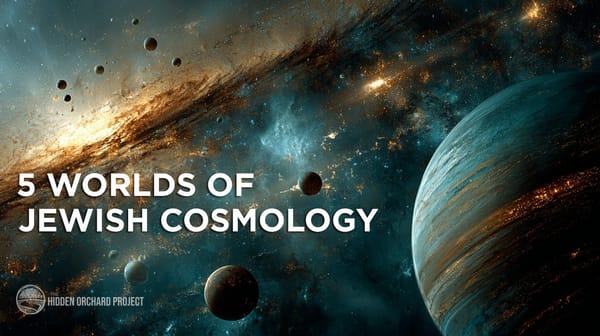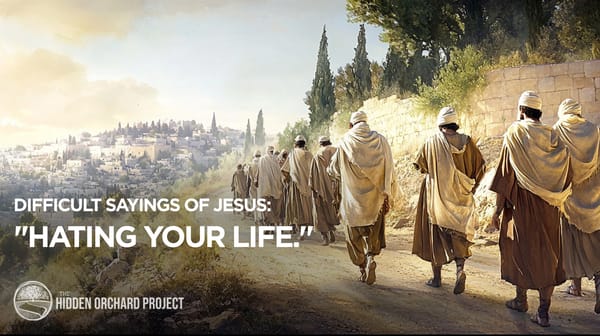The Soul is a Flame
In the Sermon on the Mount, Yeshua leverages many ideas from the Midrash that expound upon the deeper concepts in the Torah. ... many of them find their closest parallels to the works of the Kabbalah - texts like the Zohar, the writings of the ARIzal, and the Tanya.

In the Sermon on the Mount, Yeshua leverages many ideas from the Midrashic tradition that expound upon some deeper concepts in the Torah. While nearly all of his teachings can be matched with a parallel in the Talmud or Midrashic literature, many of these teachings find their closest parallels in the works of the Kabbalah - via texts like the Zohar - and later writings of the ARIzal, and the Tanya.
Below we will deconstruct a familiar passage, connect the components, and reassemble them to understand them in a new light.
Wine & Oil
Many metaphors and similies in rabbinic literature are consistent with the teachings of Yeshua and the Apostles. In this particular passage, we'll begin with the imagery of oil.
Apart from the literal meaning, oil often represents obedience to the commandments of the Torah. This connection can be found in the Torah itself through the Shema, a prayer that is recited 2-3 times daily in traditional Jewish prayer observance. The text says, If you obey the commandments, I will grant you wine and oil.
If, you obey the commandments that I enjoin upon you this day, loving the LORD your G_D and serving Him with all your heart and soul, I will grant the rain for your land in season, the early rain and the late. You shall gather in your new grain and wine and oil— Deuteronomy 11:13-14
In ancient Israel, as today, oil served many purposes, such as; anointing and cooking, and was used as fuel for lamps to provide light. All of these provide useful metaphors for Messianism, considering the word for anoint is Mashach.
Therefore, the anointed one is called Mashiach, or, Messiah¹. Therefore, among other qualities, the Messiah will teach Israel to keep the Torah and bring forth the Creator's Light (revelation).
Yeshua gives a few parable to this end in Matthew 25:
“At that time the kingdom of heaven will be like 10 virgins who took their lamps and went out to meet the bridegroom. Five of the virgins were foolish, and five were wise. When the foolish ones took their lamps, they did not take extra olive oil with them. But the wise ones took flasks of olive oil with their lamps. When the bridegroom was delayed a long time, they all became drowsy and fell asleep. But at midnight there was a shout, ‘Look, the bridegroom is here! Come out to meet him.’ Then all the virgins woke up and trimmed their lamps. The foolish ones said to the wise, ‘Give us some of your oil because our lamps are going out.’ ‘No,’ they replied. ‘There won’t be enough for you and for us. Go instead to those who sell oil and buy some for yourselves.’ But while they had gone to buy it, the bridegroom arrived, and those who were ready went inside with him to the wedding banquet. Then the door was shut. Later, the other virgins came too, saying, ‘Lord, lord! Let us in!’ But he replied, ‘I tell you the truth, I do not know you!’ Therefore stay alert because you do not know the day or the hour. - Matthew 25:1-13
In this parable, the wise bridesmaids are the ones who prepared themselves for the bridegroom by acquiring oil. On a deeper level, the bridegroom represents Messiah, and the wedding the messianic Kingdom. It was through their obedience to Torah, and observance of the commandments that they acquired this oil.
The foolish ones were the lazy, distracted, or perhaps misinformed ones, who did not observe their Torah responsibilities and were thus rejected by the bridegroom. They had no oil for their lamp, thus no light, and were left behind.
We can see this idea explicitly described in a later writing:




